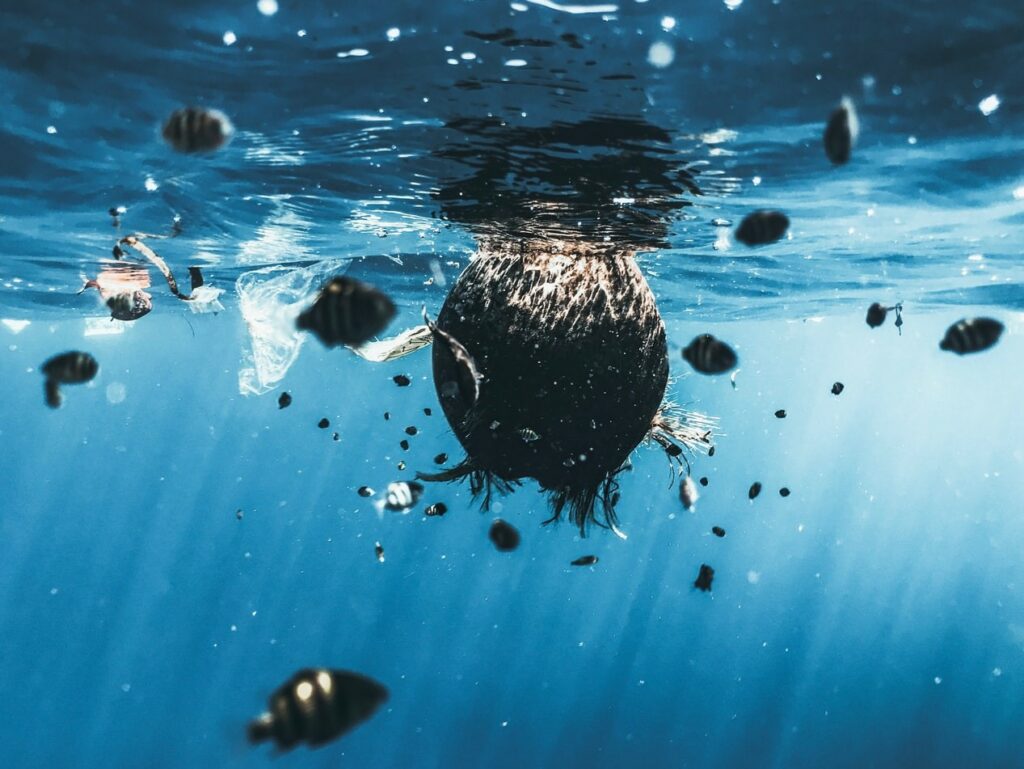Storm drains are an important part of our infrastructure and help to keep rainfall, or stormwater, from flooding our streets and neighborhoods. However, rainwater and irrigation runoff wash pollutants, trash and chemicals into our storm drains. Stormwater is untreated – meaning it runs directly into our oceans, rivers and waterways along with anything else it picks up along the way. The good news is that you can help! Here are the most common pollutants and how you can help make sure they end up where they belong – properly disposed of and not in our waterways.

Pollutant: Trash and Litter
Solution: This one is simple – don’t litter! Make sure anything you throw away is securely disposed of in a lidded trash or recycling can and be sure to double check for any debris that you may have accidentally left behind at beaches, parks and other outdoor facilities. If you see litter, pick it up and throw it away.
Pollutant: Cigarette Butts
Solution: Unfortunately these are the most littered items in America and a common source of plastic pollution. They are often found in the stomachs of animals who mistake them for food, and can leach toxins including arsenic and lead into our soils and waterways. If you are a smoker, dispose of cigarettes properly in specialized cigarette trash receptacles. Participate in a local beach, river or lake cleanup to help get rid of cigarette butts and other litter and make sure they don’t end up in your local waterways.
Pollutant: Motor Oil
Solution: Used motor oil from a single oil change can pollute up to one million gallons of freshwater. Clean up oil spills and fix leaky automobiles. If you’re repairing your vehicle, make sure to use a drip pan to catch any oil that will otherwise be washed into storm drains. Be sure to recycle used motor oil at your nearest CalRecycle Used Oil Certified Collection Center.
Pollutant: Over-irrigation
Solution: If you see water flowing off your lawn during irrigation, it means you are using too much. Irrigation runoff picks up debris and other pollutants as it travels to the nearest storm drain, which can cause storm drain blockages and flooding that are easily avoided. Check your irrigation system for broken sprinklers and adjust the timing to avoid over-watering. Pay attention to seasonality and reduce watering when possible during wet or rainy seasons.
Pollutant: Pet Waste
Solution: Clean up after your pet and dispose of pet waste in a covered trash receptacle! Pet waste is a major source of bacteria and high levels of nutrients in our waterways, which can lead to toxic Harmful Algae Blooms in both inland and coastal waters. Using pet waste baggies is a simple way to keep pet waste and the subsequent bacteria out of local waterways and to prevent it from harming wildlife.
Pollutant: Yard Clippings + Fertilizers
Solution: Collect yard clippings and dispose of them properly in a covered green waste trash can to keep them from causing drain blockages and washing into local waterways. Use organic fertilizers such has compost and mulch, and avoid pesticides and harsh chemicals that will inevitably be washed into storm drains by rain or irrigation systems. You can learn more about Pollution Prevention Gardening here!
Pollutant: Car Cleaning Chemicals
Solution: Take your car to a certified car wash whenever possible, and if you do wash your car at home, try to do it on a permeable surface with biodegradeable soaps so that the runoff can be absorbed by the ground. Never allow water from washing your car run off of your property and into a storm drain.
Remember, your simple every day actions have a big impact – together we can make a difference and reduce stormwater pollution in San Diego County. If you see anything other than rainwater entering our storm drains, use our Report Pollution Tool to let us know so we can send out a crew to investigate and clean up!
Ready for the next step? Join Project Clean Water today and take the 52 Ways to Love Your Water Pledge
